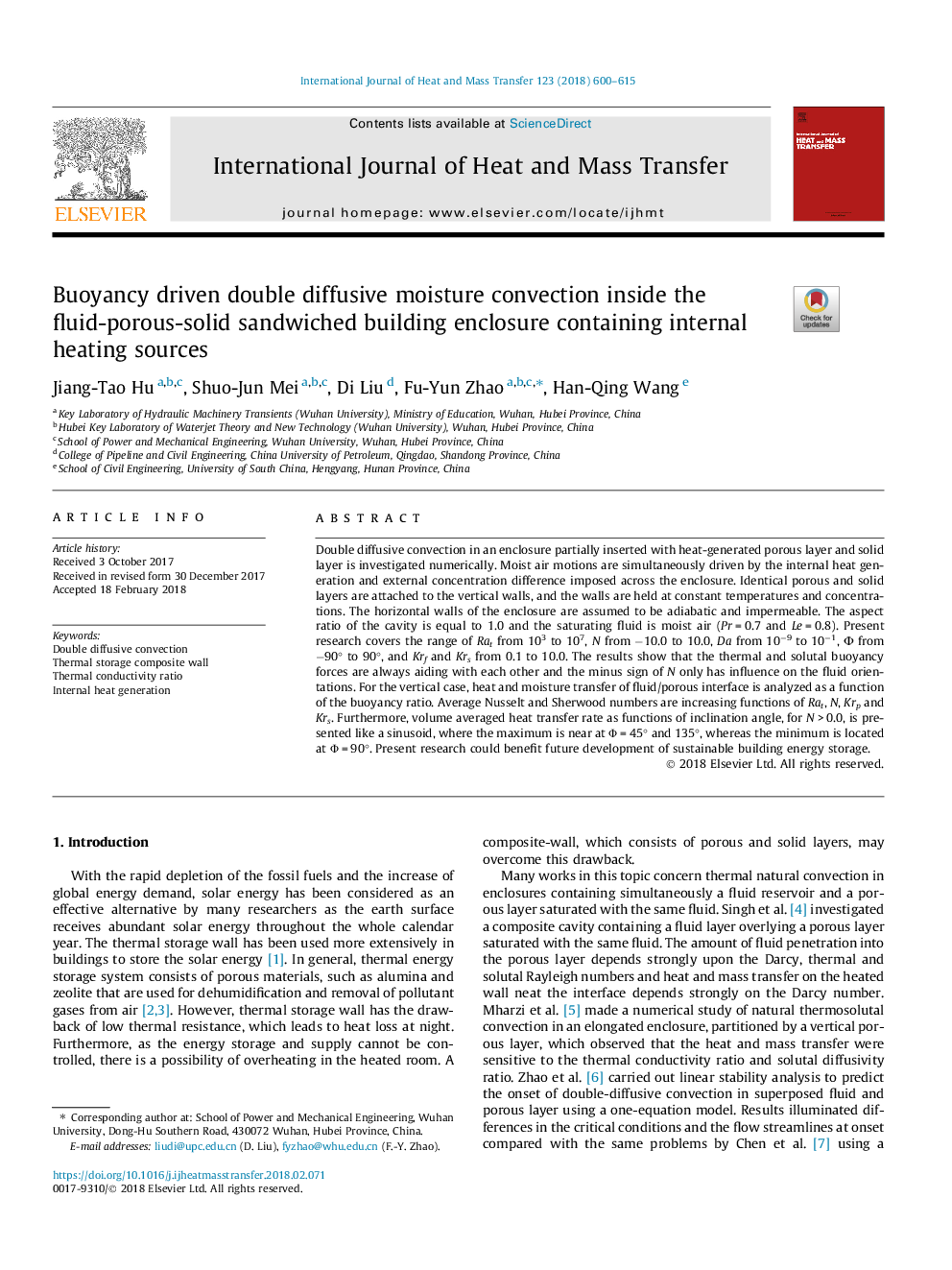| Article ID | Journal | Published Year | Pages | File Type |
|---|---|---|---|---|
| 7054284 | International Journal of Heat and Mass Transfer | 2018 | 16 Pages |
Abstract
Double diffusive convection in an enclosure partially inserted with heat-generated porous layer and solid layer is investigated numerically. Moist air motions are simultaneously driven by the internal heat generation and external concentration difference imposed across the enclosure. Identical porous and solid layers are attached to the vertical walls, and the walls are held at constant temperatures and concentrations. The horizontal walls of the enclosure are assumed to be adiabatic and impermeable. The aspect ratio of the cavity is equal to 1.0 and the saturating fluid is moist air (Prâ¯=â¯0.7 and Leâ¯=â¯0.8). Present research covers the range of Rat from 103 to 107, N from â10.0 to 10.0, Da from 10â9 to 10â1, Φ from â90° to 90°, and Krf and Krs from 0.1 to 10.0. The results show that the thermal and solutal buoyancy forces are always aiding with each other and the minus sign of N only has influence on the fluid orientations. For the vertical case, heat and moisture transfer of fluid/porous interface is analyzed as a function of the buoyancy ratio. Average Nusselt and Sherwood numbers are increasing functions of Rat, N, Krp and Krs. Furthermore, volume averaged heat transfer rate as functions of inclination angle, for Nâ¯>â¯0.0, is presented like a sinusoid, where the maximum is near at Фâ¯=â¯45° and 135°, whereas the minimum is located at Фâ¯=â¯90°. Present research could benefit future development of sustainable building energy storage.
Related Topics
Physical Sciences and Engineering
Chemical Engineering
Fluid Flow and Transfer Processes
Authors
Jiang-Tao Hu, Shuo-Jun Mei, Di Liu, Fu-Yun Zhao, Han-Qing Wang,
